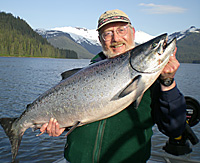By Diana Brement,
JTNews Columnist
A guilty secret: I’m hooked on “Hoarders,” the new hit TV show on A&E. So it was great to find out it was conceived and is produced right here in Seattle by Jodi Flynn, director of development for Screaming Flea Productions, and her team.
“We are busy,” says Jodi, with orders for 13 more episodes. “People don’t realize that most television is not produced by a network.”
Hundreds of production companies produce most shows we watch, and there are “more now with the advent of the Mac [computer] and good digital cameras,” she says.
Yet demand still increases as more networks emerge.
Like me, you may have wondered what a TV producer does.
“Everything,” Jodi explains, from generating ideas and getting guests to delivering the tape. “We put the elements together to tell a story.”
Growing up in Manhattan, Jodi studied political communications at George Washington University.
“I knew I wanted to be in television news,” she says, but 20 years ago “you couldn’t really study television.” (How times have changed!)
She got her first TV job in Washington, D.C., and she’s never worked in another industry.
“Hoarding,” a mental illness believed to be related to obsessive-compulsive disorder, causes people to collect things or animals in their homes to the point that it harms their relationships or health.
The show was inspired by an unaired program about cleaning up hoarders’ houses. That proved too depressing, but it led Jodi to the idea of focusing on the hoarders themselves. The production team decided to spotlight those in crisis, waiting for authorities to take their children, to condemn their property or arrest them for animal cruelty.
“We wanted a show where we could…help people,” and to do “justice to their problem without being exploitive,” she says, although she notes, “it can take 20 years to really help a hoarder.”
Jodi’s staff provides professional help for their subjects — clean-up crews, psychologists and organizers, and “aftercare…to keep them on track.”
The first show aired in August and was immediately popular, like “lightning in a bottle.” The crew originally worked hard to find subjects; now they are getting more than 100 submissions a week.
It still takes time to develop each show.
“There is a trust issue,” says Jodi.
These days Jodi spends her precious free time exclusively with her kids, Sydney and Aidan. “We ski, we play golf…I’m a learning golfer. All three of us are learning together.”
|||
Finding far-flung Jews, and those with unusual occupations, is part of the fun of this column, so I hit a jackpot when Seattle-born Alaska fishing guide and all-around funny guy Morry Israel contacted me recently.
“I showered and put on fresh clothes for this phone call,” he told me from above the 49th parallel.
The self-described “black sheep of Seward Park” and Franklin High graduate was introduced to Alaska at 18 when he was sent to work on a “halibut schooner out of Kodiak” as punishment for some teenage misdeed. One particularly rough storm convinced him he needed to go to college. He returned home to attend The Evergreen College, and was a member of the school’s first graduating class.
He’s made a career in tourism. He worked in Mexico for a couple of years, then returned to Seattle where he helped start the Alaska Sport Fishing Lodge Association, which fell apart after the Exxon Valdez disaster. He lived a few years in Israel and started an Alaska travel office in Tel Aviv.
“I’m really not tough enough to do business in Israel,” he says.
Eventually he returned to Alaska as a fishing and wildlife guide, moving to Angoon, a Tlingit village on Admiralty Island, a U.S. National Monument where the bear population outnumbers humans three-to-one.
“I liked the area because there weren’t any other lodges,” at the time other than Whaler’s Cove where he was guiding. He says it’s a bit like the Wild West, an area “least impacted by civilization than any I’ve been to,” he says.
Morry loves to take visitors from around the world up remote streams and rivers with Tlingit names where the salmon “pop out of the gravel” and bears and whales abound.
It’s like “living in a National Geographic magazine,” he says.
His neighbors are aware he’s Jewish and since many are Christian they recognize he’s from “the people of the book.
“They expect me to be good,” he says, an enduring theme in his life. Growing up, he says his dad and his grandfather always told him, “your name is Israel, you have to be good.”
He’s also “the only white guy who’s ever been adopted into the Chaak Kudi Hit” — Eagle Nest House — part of an amalgamation of Tlingit clans. He’s changed “a lot of cultural things, behavioral things,” he says, to get along in the village, including learning to speak softly, but says there are shared “basic values” among Jews and Tlingits.
Morry now has his own guide service and has developed a Web site where you can see photos of him and his environs at www.alaskamorry.com. Summer, of course, is the best time to come. In winter Morry sometimes teaches at the local school and does marketing for himself or the lodge.
“Sometimes I take a big vacation,” including visits to Israel. He once caught a trout in the Jordan River (they escape from kibbutz fish farms).
“I found one thing that Israelis and Arabs have in common…if they see an American release a fish they both think the American is crazy,” he laughs. “I got yelled at in Hebrew and Arabic for releasing trout.”
